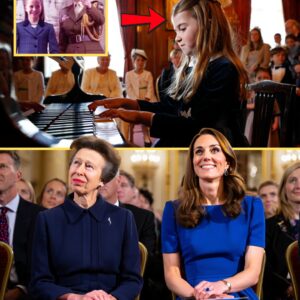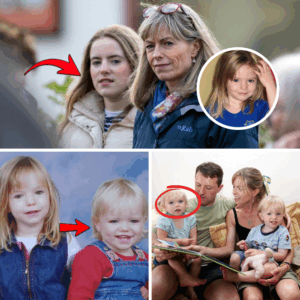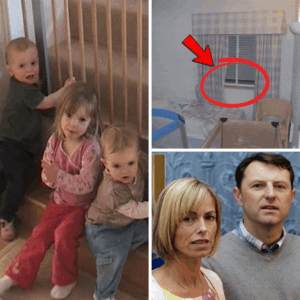In the wake of the tragic death of Diogo Jota, a beloved Portuguese footballer and Liverpool star, a shadowy organization claiming to honor his legacy has come under intense scrutiny. The Diogo Jota Foundation, established mere days after Jota’s fatal car accident on July 3, 2025, has raised nearly £50,000 through online donations, purportedly to support youth football, education, and community initiatives in his name. However, shocking revelations have emerged that the foundation has no connection to Jota’s family, Liverpool Football Club, or the reputable organizations it claims to partner with. As the football world grapples with grief, questions loom: Where is the money going, and will any of it reach the family of the late striker and his brother André Silva, who also perished in the crash?
Diogo José Teixeira da Silva, known to millions as Diogo Jota, was a footballing phenomenon whose journey from the modest pitches of Gondomar, Portugal, to the hallowed turf of Anfield captivated fans worldwide. Born on December 4, 1996, Jota rose through the ranks at Paços de Ferreira before earning moves to Porto, Atlético Madrid, and Wolverhampton Wanderers, where he netted 44 goals in 131 appearances. In 2020, Liverpool signed him for £41 million, and he quickly became a cornerstone of their attack, scoring 65 goals in 182 games and helping secure the 2024-25 Premier League title, alongside the 2021-22 FA Cup and League Cup. Off the field, Jota was a devoted family man, marrying his high school sweetheart, Rute Cardoso, on June 22, 2025, just 11 days before his death. The couple had three young children: Dinis, born in 2021; Laura, born in 2023; and João, born in 2024. Tragically, Jota and his brother André, a 25-year-old footballer for Penafiel, died in a car accident near Zamora, Spain, while traveling to Santander for a ferry to England.
The accident, caused by a tire blowout that sent their Lamborghini crashing into a ravine, plunged the football community into mourning. Tributes poured in from teammates, rivals, and global icons like Cristiano Ronaldo, who called Jota “a brother.” Liverpool retired Jota’s number 20 shirt, announced a “Forever 20” emblem for the 2025-26 season, and committed to a grassroots football program through their official charity, the LFC Foundation. Fans left flowers and scarves at Anfield, and Chelsea players, led by Jota’s former Wolves teammate Pedro Neto, donated a share of their FIFA Club World Cup bonuses—over £368,000—to Jota’s family, a gesture that moved millions.
Amid this outpouring of genuine support, the Diogo Jota Foundation emerged, launching its website, diogojotafoundation.org, on July 6, 2025, just three days after the tragedy. The site presented itself as a tribute to Jota’s legacy, claiming to “celebrate Diogo’s incredible journey from a small youth academy in Gondomar to one of Europe’s most respected footballers.” It outlined “core pillars” of football programs, scholarships, and community partnerships, boasting of distributing 25,000 meals, sponsoring 300 children in school, and forging 50 local partnerships. The homepage featured a poignant quote attributed to Jota: “Football gave me everything. I always believed in using the game to give back—to inspire, uplift, and create chances for others to thrive.” Another quote, from a supposed “close family friend,” read: “Diogo always gave quietly. His heart was in the community. We’re proud to continue that legacy in his name.”
The foundation’s donation page, linked to an external platform, claimed to have raised $64,250 (£47,715) as of August 21, 2025. However, red flags quickly surfaced. The site accepts only cryptocurrency payments—USDT, ETH, and other coins via NOWPayments—raising suspicions due to the anonymity and lack of transparency associated with such transactions. More alarmingly, the website prominently displayed logos of Liverpool FC, Unicef, Allianz, and the Portuguese Platform of Development NGOs, suggesting official partnerships. Investigations revealed that three of these organizations had no knowledge of the foundation and had not authorized the use of their branding. Allianz issued a statement: “We do not have a partnership, and our logo should not have been used. We are taking steps to get the website shut down.” Unicef and the Portuguese NGO platform echoed similar sentiments, seeking to remove their logos from the site.
Liverpool FC, along with Jota’s family, including his widow Rute Cardoso, confirmed they had no connection to the foundation. The club issued a statement urging fans to support the LFC Foundation instead, noting that profits from shirts printed with “Diogo J. 20” would fund their official grassroots program in Jota’s name. The UK’s Charity Commission further deepened suspicions, confirming that no registration application had been filed for the Diogo Jota Foundation, despite its claims of offices in London, New York, and Lisbon. Attempts to contact the listed phone numbers went unanswered, and an email to the foundation’s address received no response. NOWPayments, the crypto payment processor, swiftly disabled the donation widget upon learning of the potential scam, stating, “No payments were processed through our platform, and we have taken action to prevent misuse.”
The timing of the foundation’s creation—mere days after Jota’s death—has fueled accusations of opportunism. Cybercrime experts point to a pattern of scammers exploiting tragedies to prey on public sympathy. Similar tactics were seen after the Turkey-Syria earthquakes and the war in Ukraine, where fake charities siphoned donations. The Diogo Jota Foundation’s use of cryptocurrency, lack of verifiable contact details, and unauthorized logos align with these schemes. The Fundraising Regulator warned: “In the wake of tragedies, there are always some who seek to capitalize on the public’s generosity. We advise caution to ensure donations reach their intended recipients.” Social media platforms, particularly Reddit’s r/soccer community, erupted with outrage, with users calling the scheme “disgusting” and lamenting the exploitation of Jota’s memory.
So, will the £47,715 reach Jota’s family? The evidence suggests otherwise. With no legitimate ties to the family or Liverpool, and no registered charity status, the funds are likely diverted to unknown parties. The crypto-only donation system complicates tracking, as transactions are often irreversible and pseudonymous. Authorities in the UK, Portugal, and the US are reportedly investigating, with the Charity Commission coordinating with international counterparts to trace the website’s operators. The domain, registered through a privacy-protected service, offers few clues, but its rapid setup and polished design suggest a sophisticated operation, possibly linked to broader scam networks targeting high-profile tragedies.
For Rute Cardoso and her three children, the scam adds insult to injury. Rute, who has shown remarkable resilience, has vowed to continue Jota’s charitable vision through legitimate channels. She recently visited Anfield with her children to view tributes, including a card from Liverpool players reading “You’ll Never Walk Alone,” which brought her to tears. The LFC Foundation’s planned program, funded by shirt sales and supported by the club’s payout of Jota’s remaining contract salary, ensures some of his legacy endures. Chelsea’s donation, confirmed to be directly transferred to the family’s accounts, offers further financial security for Dinis, Laura, and João.
The scandal has sparked broader discussions about online fraud in philanthropy. Experts urge donors to verify charities through official regulators like the Charity Commission or GuideStar before contributing. Warning signs include pressure for immediate donations, lack of transparent financial reports, and reliance on cryptocurrency. Liverpool fans, devastated by the deception, have rallied to protect Jota’s legacy, with some proposing fan-led initiatives to counter the scam’s damage. One supporter on social media wrote, “Jota gave us joy; don’t let scammers steal his name. Donate to the LFC Foundation instead.”
As investigations unfold, the Diogo Jota Foundation remains a stark reminder of the dark side of human generosity. The football community, united in grief, continues to honor Jota and André through genuine tributes—a mural at Anfield, a minute’s silence before Liverpool’s season opener, and grassroots programs in Gondomar. For Rute and her family, the path forward is fraught with pain, but the outpouring of authentic support from clubs, players, and fans worldwide offers a beacon of hope. The question of whether the £50,000 will reach them remains unanswered, but one truth is clear: Jota’s light, as the fraudulent foundation falsely claimed, will shine on through those who truly knew and loved him.





